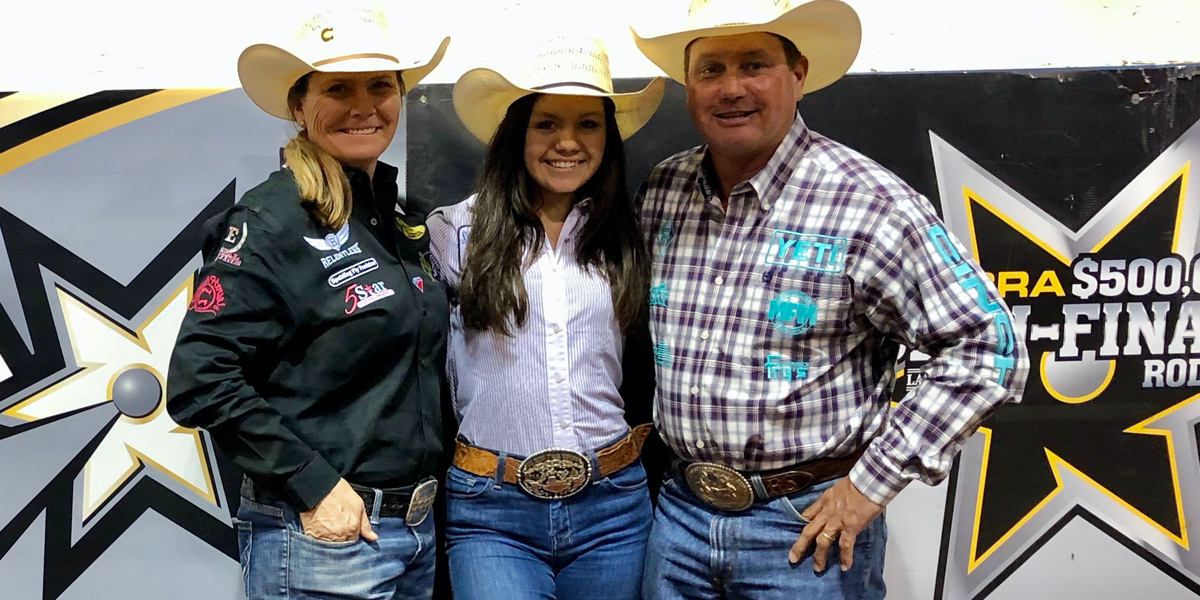
Want to see a grown cowboy cry? Tell any of the greatest team ropers of all time that his daughter won’t have to fight the same fight he has all his life to compete for equal money. While team roping is now a standard event at all professional rodeos, the best team ropers in the world have yet to earn equal money everywhere they compete. Both partners pay association dues, entry fees, fuel and all other expenses—including trucks, trailers and the high-dollar horses it takes to hang at the highest level—and yet they’re still fighting for equal pay.
Progress in rodeo’s only tandem event has been made over the years. But this generations-old battle continues. Imagine the relief, glee and gratitude for the living legend team roper girl dads about the fact that the first-ever Women’s Rodeo World Championship, which is coming up November 3-7 at the South Point in Las Vegas, will feature equal money for women team ropers straight out of the blocks.
The World Champions Rodeo Alliance and Professional Bull Riders have joined forces on this historic $750,000 opportunity for women, which will be held across town from the November 4-8 PBR World Finals at T-Mobile Arena. The Women’s Rodeo World Championship (WRWC) will crown five champions, with each event winner in barrel racing, breakaway roping and team roping winning a minimum of $60,000. So yes, that means $60,000 per (wo)man to the winning header and heeler, thanks to equal money for all. A $20,000 Women’s Rodeo All-Around Champion bonus also will be awarded to recognize and reward cowgirl versatility in today’s ultra-competitive age of rodeo-athlete specialists.
Leo Camarillo won four Professional Rodeo Cowboys Association world team roping titles and a world all-around championship in the 1970s and ’80s. No one has worked harder than this member of the original ProRodeo Hall of Fame Class of 1979 to revolutionize team roping or push for progress in pay than “The Lion.” Now 74, Camarillo also happens to be the dad of roping daughter Cassie, who’s 16.
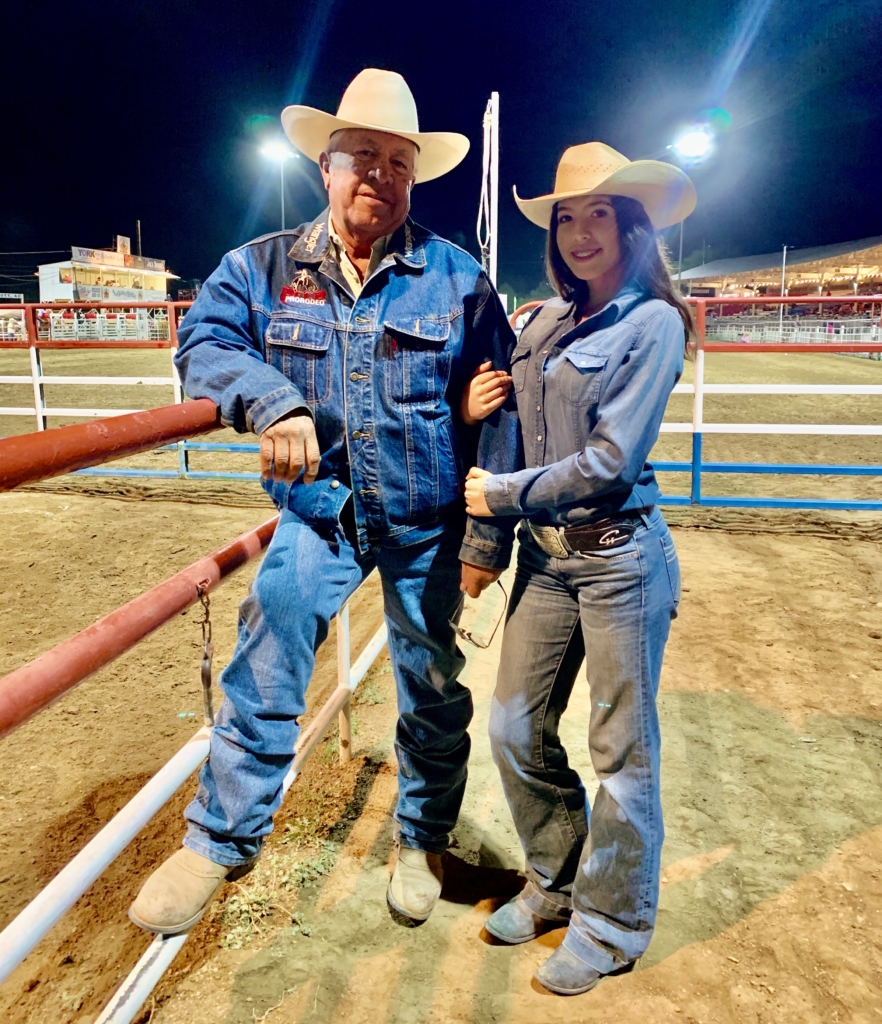
“If there were 600-700 pro rodeos back when I was rodeoing, there might not have been 60 of them that even had team roping,” Camarillo said. “Denver, San Antonio and Houston all have team roping now, but that was not always the case. I grew up in California, which was the mecca of team roping back in the day. But on the rodeo side, the pickings were pretty slim for team ropers. Team roping is booming now, in part because so many people from all walks of life and all ages can participate in it. But back then, team roping was in no way treated equal to the events.
“There was never equal money in the team roping at the National Finals Rodeo during my career. Imagine the hit my career earnings took compared to guys in other events over that. Team roping didn’t really take off until the end of my career, and in some cases after my career was over. I never got to team rope on the grass at the Pendleton Round-Up, for example, because they didn’t have our event there when I was rodeoing for a living.”
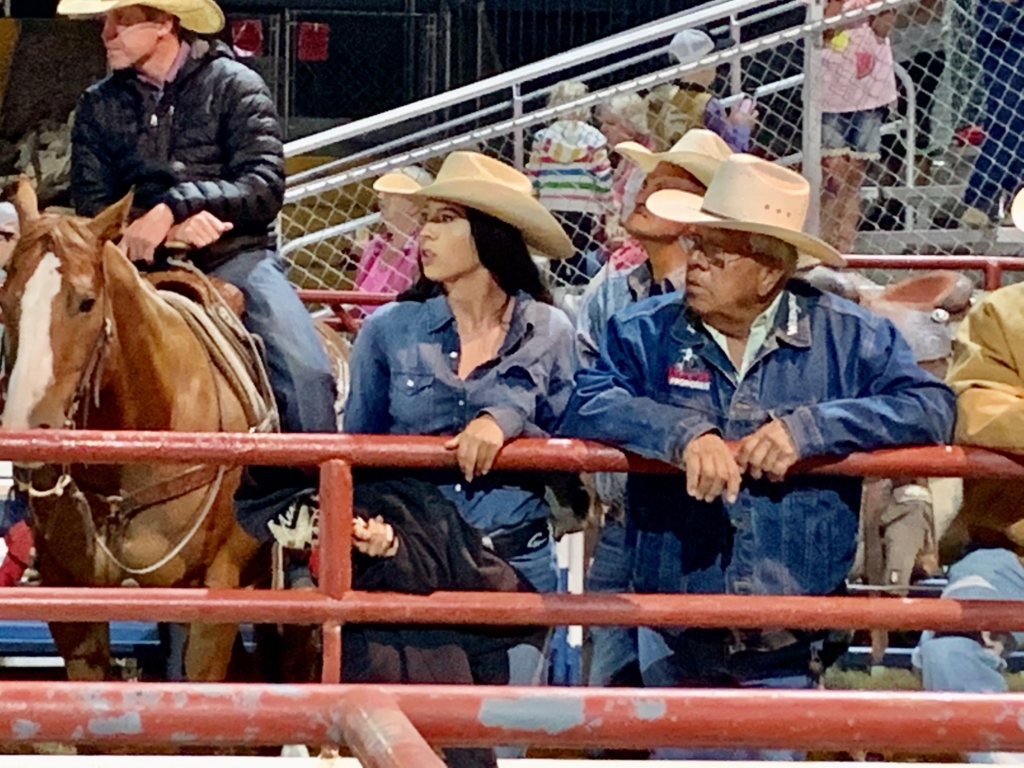
The news of equal money at this first WRWC—and the fact that Cassie won’t have to fight for equality like Leo has—puts a lump in The Lion’s throat.
“Team roping is what it is today because of the pioneers who paid the price,” Camarillo said. “The Western world gets it now—team roping is a fun event, and everybody can do it. The crowd loves it, and men, women and children can all take part. Equal money straight out of the gate is a big deal. When astronaut Neil Armstrong took the first-ever walk on the moon with an American flag in his hand, he said, ‘That’s one small step for man, one giant leap for mankind.’ In this case, ‘That’s one small step for women, one giant leap for the sport of rodeo.’ To get equal money right off the bat is hard for me to even comprehend. The biggest dogs in the sport still don’t get that everywhere they go, and they’re the best in the business.”
Per #AllForRodeo code, every WCRA rodeo features equal money in the team roping.
“When I was rodeoing for a living, when they added money to the team roping we had to cut it in half—half for the header and half for the heeler—even though it takes two to tango in our event,” Leo said. “This women’s finals in Vegas is an inviting, exciting opportunity, and it’s what’s right, because women are a big part of this lifestyle we all live and love. Kids like my daughter are saying, ‘I want to rope, Daddy.’ Now her opportunity is not just confined to college and amateur rodeo, like it used to be. A gateway of new opportunity for women in rodeo is coming, and an event like this one is just more proof of that.”
Back when the likes of Leo were heading the charge to add team roping to the event roster at rodeos, he took his tour of team roping schools coast to coast to broaden interest and appreciation for his signature event.
“Speedy Williams was still riding a pony when we (Leo, brother Jerold and cousin Reg) started teaching roping schools back in Florida,” Camarillo said. “Team roping is a household word now, but you don’t have to turn the hands of time back very far to see it wasn’t always that way.”
Williams is the heading half of the winningest team roping team of all time. He and Rich Skelton won eight-straight gold team roping buckles together between 1997 and 2004. Guess what they have in common today? Yes, girl dads. And like Leo’s Cassie, Hali Williams and Rainey Skelton are both 16 now. I’ll never forget sick, stressed-out and physically exhausted first-time-dad Speed pacing the Thomas & Mack Center hallways after Round 9 at the 2003 NFR, and he and Jennifer’s baby girl making her grand entrance into the world at 1 a.m. Texas time that morning of Round 10.
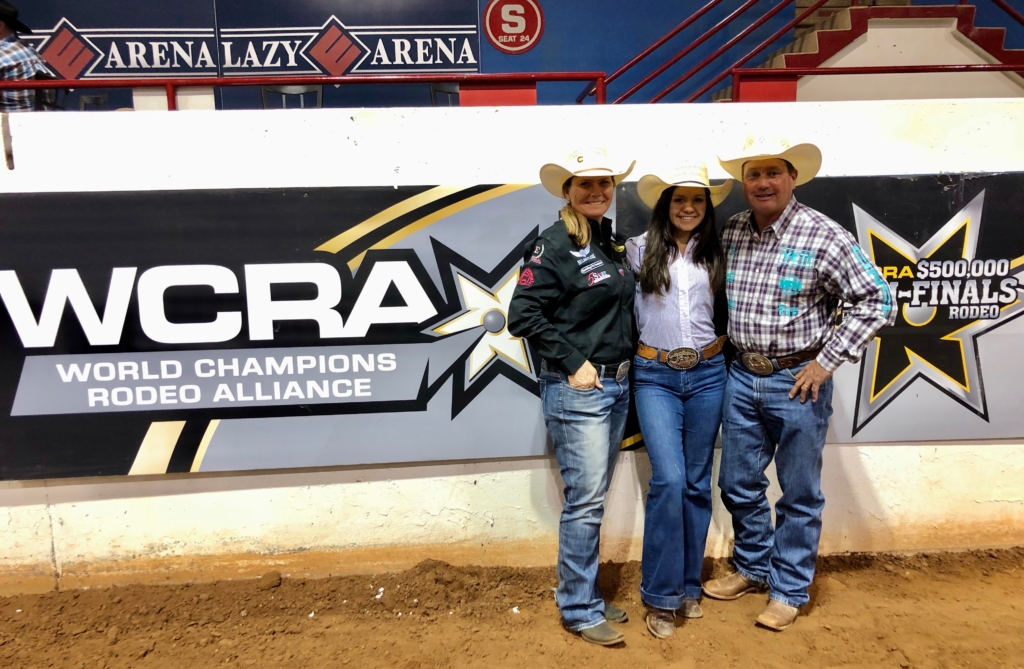
(Kendra Santos Photo)
These days, Hali and little brother Gabe rope all day every day with Speed, and this $750,000 event in the city that made his roping dreams comes true has the dad’s attention. Hali’s been a #6 header since she turned 15, and also breakaway ropes and runs barrels. On the heading side, she’s been working on her range—as in the ability to reach. Daddy Speed has some breakaway roping ideas up his sleeve that he thinks might raise the bar the way he did the world-class heading game.
“This boom in women’s rodeo gives me all kinds of excitement,” Speed said. “And on the breakaway roping sides of things, I’m trying to teach her some things girls don’t do yet in that event. Things are fixing to get fast.
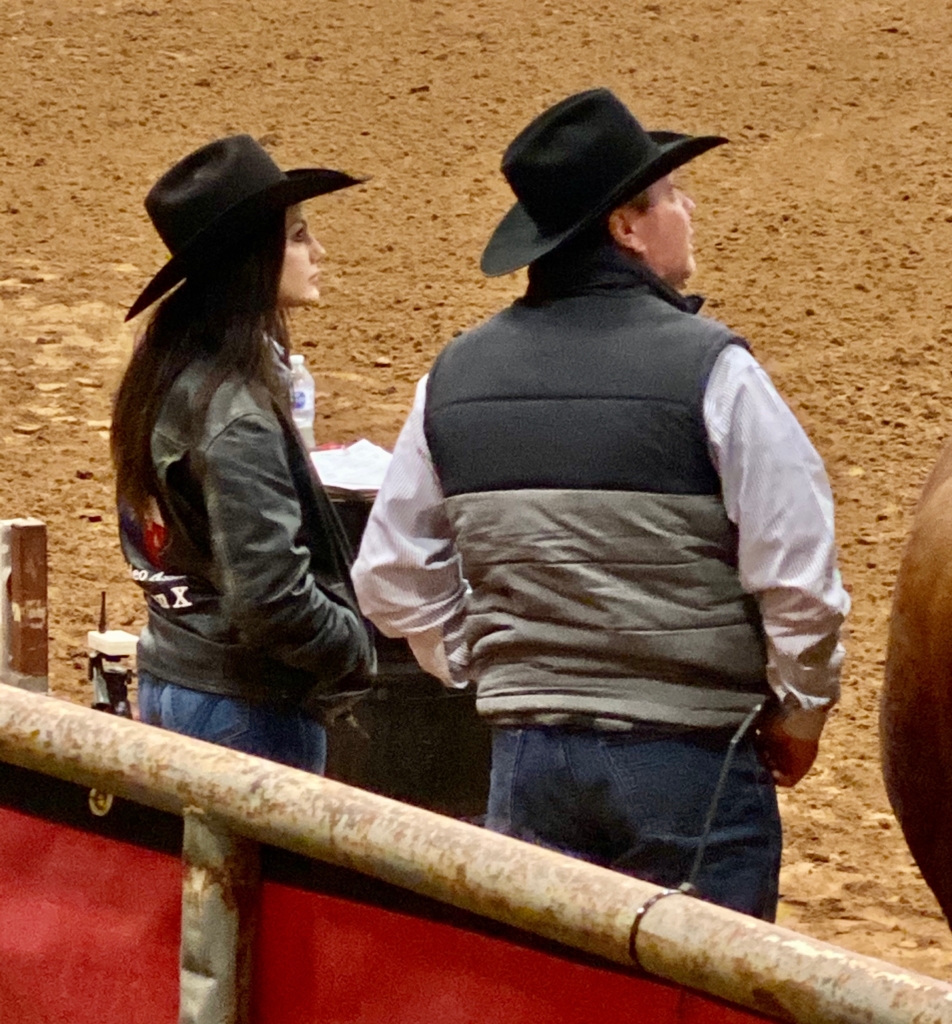
“We run in the calves and the steers at the same time when we practice here at the house, and we’re always working to get better at all of it. The WCRA and PBR stepping up to give the women the opportunity to compete for big money—and equal money in every event—means a lot to me as a dad, because it gives girls like my daughter great hope that it might actually be possible to make a living doing what she loves to do. Hali loves roping and barrel racing. This is a big chance to step onto a big stage and make some big money.
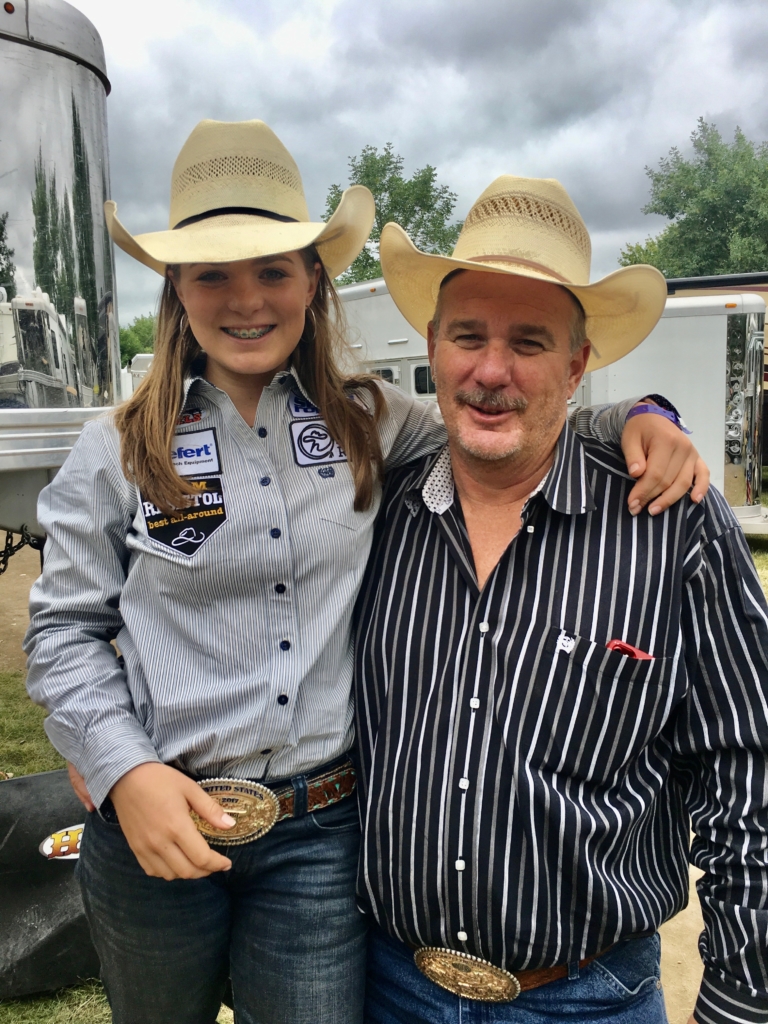
“When Rich and I won our first championship in 1997, the go-rounds in the team roping at the NFR only paid $6,000. There was no equal money in the team roping. For these girls to get equal money at this first finals is exciting. I’m very happy for them that it’s happening. And as hard as these girls and women work, it’s long overdue.”
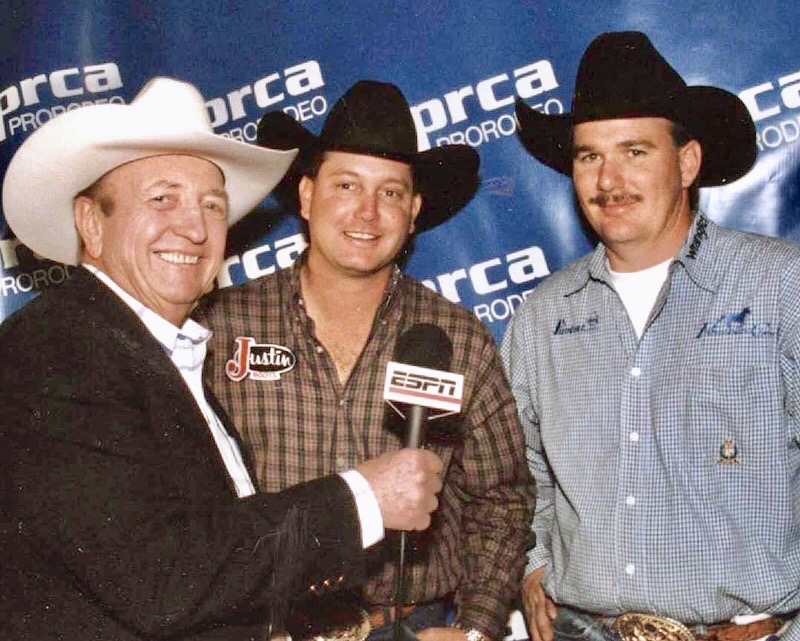
Rainey Skelton was born on February 19, 2004, a couple of months after Hali’s birth and Speed and Rich’s seventh world championship. Rainey’s an ultra-diversified all-around cowgirl who heads, breakaway ropes, barrel races, goat ties and pole bends.
“I wish the WCRA would have been around when I was in my prime, because of all the money there is to be won,” Rich said. “But it’s never too late. Even though I’m getting closer to the end of my career, it’s good to see rodeo progressing, and all the events moving together in the same direction and the right direction.
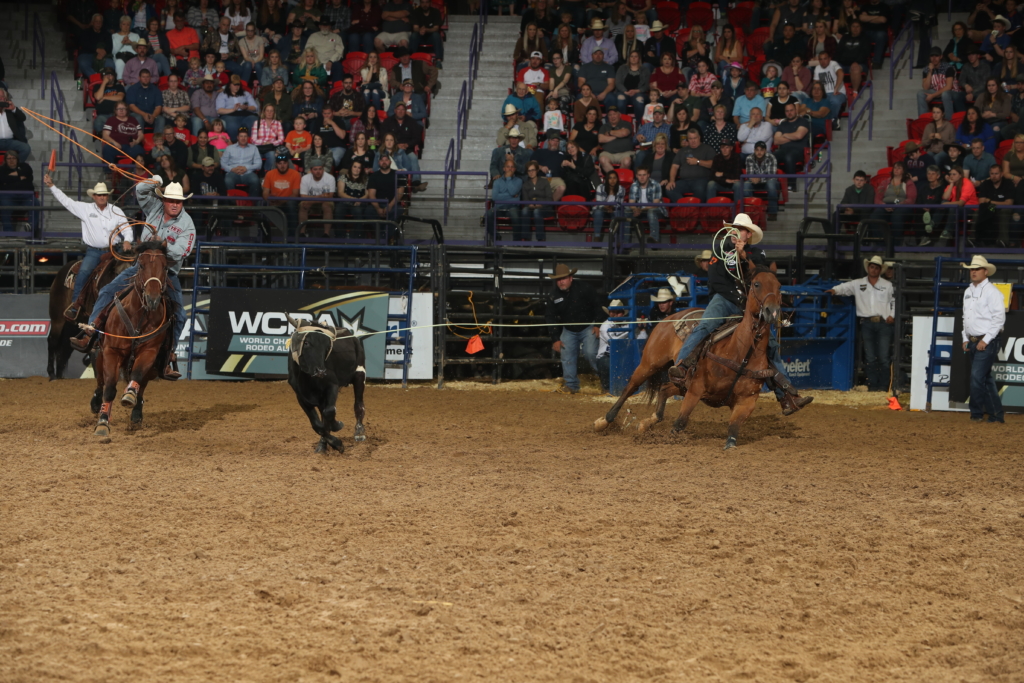
“Everything costs so much today, so traveling hard is tough on a lot of people. The WCRA is for real, and on top of making all this big money possible, they make these additional opportunities available to everyone. If you want to stay closer to home, you can still run at good money without spending it all on diesel and wearing your horses out in the trailer. It’s hard to tell a kid who hasn’t spent the last 30 years rodeoing how hard it’s been to make rodeoing pencil in the past.”
Though this is the first WRWC, Rich shares Speed’s sentiment that equal treatment for women in rodeo has been a long time coming.
“This equal money at this first finals is very exciting for these young girls and all women,” Skelton said. “For some of the pioneers who’ve worked so hard for so long—like Lari Dee Guy, JJ Hampton and Jackie Crawford—I only wish it had happened sooner. It’s about time, and I’m just glad it’s not too late for them to be a part of this. It’s a big deal. But again, that’s because the WCRA is the real deal. I’m not sure the young girls even understand that there wasn’t even equal money at the NFR for the first half of my career, or that guys like me still don’t rope for equal money everywhere we enter. Lari Dee, JJ and Jackie get that. So they know how big and great a deal this is that the women team ropers are getting equal money from the get-go.
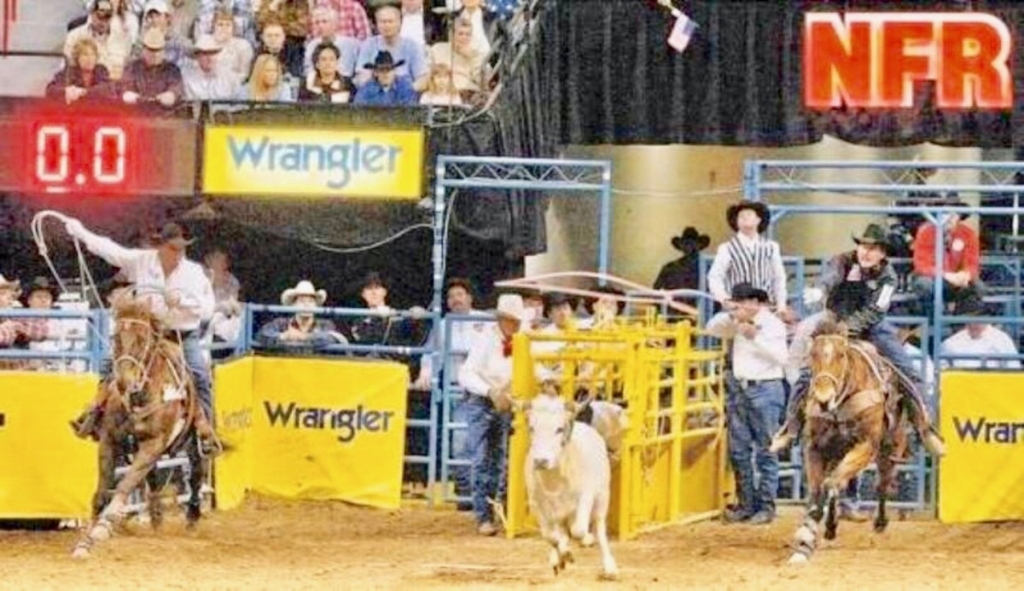
“The WCRA has really stepped up for everyone, including women. They’ve gone out on a limb to give the girls equal money at this first finals, and we all appreciate that. Rainey works hard every single day just like the guys her age. I really like that there are more events a young girl can go on in now than before. It’s a great time to be a cowgirl.”
Before Speed and Rich, dream teamers Jake Barnes and Clay O’Brien Cooper racked up seven world team roping titles together. Jake’s the only one in the bunch who doesn’t have a daughter who ropes. But even he’s excited that today’s lady team ropers don’t have to fight the same old tired fight for equal money.
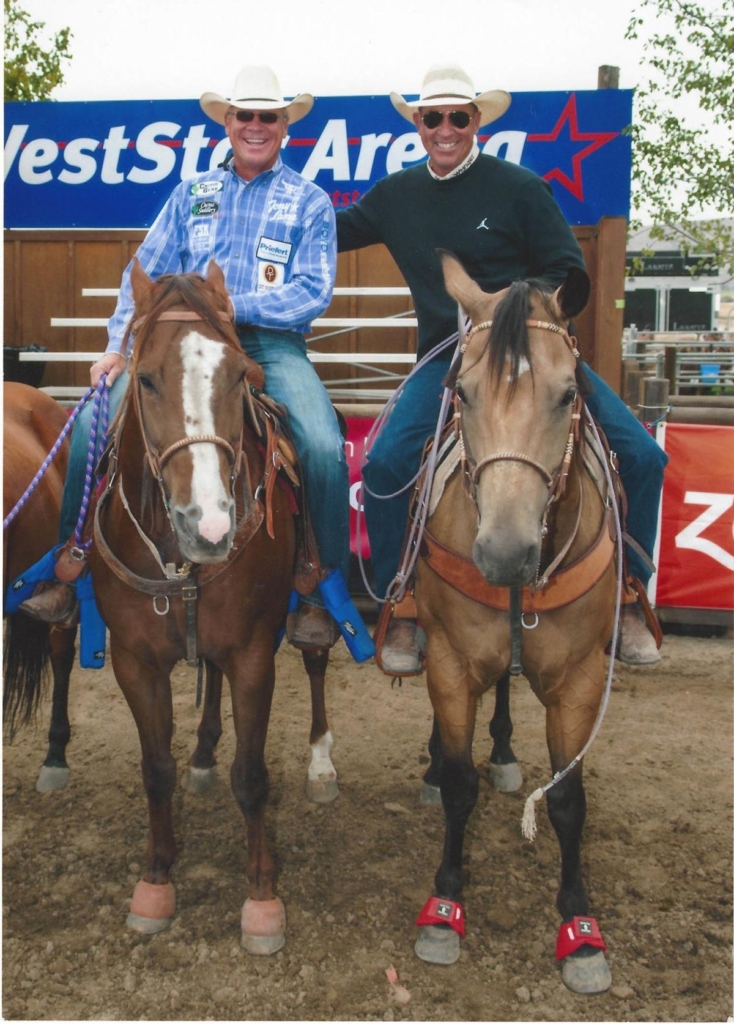
“We’ve fought tooth and nail all our careers for equal money,” Jake said. “Right’s right and wrong’s wrong, and equal money for team ropers—who make up the majority of the membership in the sport of professional rodeo—is obviously right. I applaud the women getting equal money. In the early part of my career, the team ropers were outcasts. If no one ever takes a stand, nothing ever changes. We stood up, and it helped. I hope these women know how fortunate they are to get the same pay as the other events without having to fight for it.”
Jake’s heeler during their years of domination, Clay Cooper, has two daughters, Bailey and Quinn. Bailey loves to rope, as does her daughter/Clay’s granddaughter, Fallon.
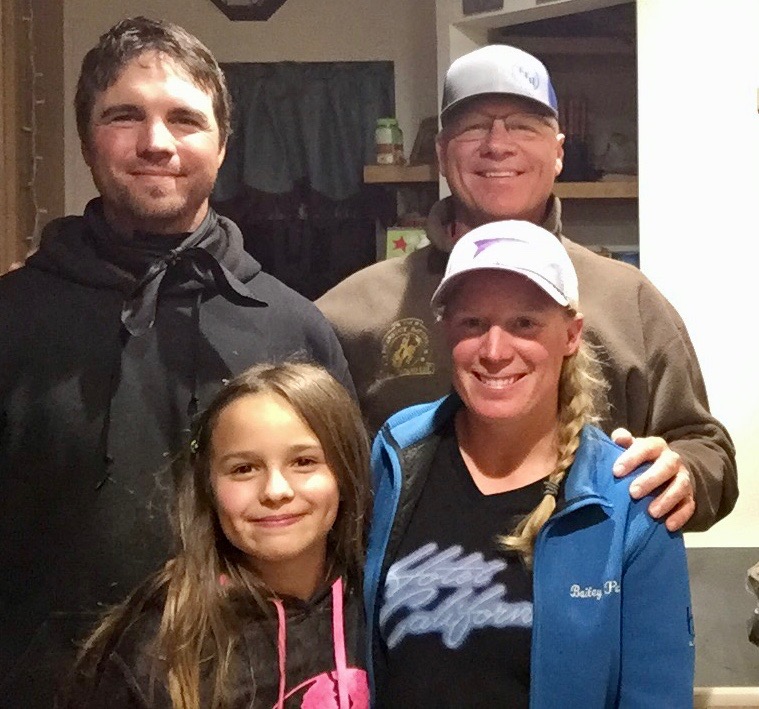
“In our time, team roping and barrel racing weren’t considered worthy of equal treatment as what at that time were considered the main, pillar events in rodeo,” Cooper said. “To think back on how it all went down—and the fact that team roping and barrel racing became the most popular events of all in terms of participation—it’s pretty ironic that we basically begged for so long to get paid the same as everybody else. Because team roping and barrel racing are so huge in terms of both participants and fans, it was inevitable that they couldn’t hold them back forever. But some did try.
“Equal money in every event catches up with the times. It’s how it should be. We all work hard, and we all put in the same time, sacrifice, effort and expense it takes to get good in any sport. So we all deserve to make a living. For team ropers to get paid the same as everyone else is a no brainer, really. That it hasn’t happened yet for all team ropers is ridiculous. Sometimes you have to stand up and buck the brass to get what’s right. The team ropers and barrel racers were able to push the wall of resistance down, so there’s a precedent for equal treatment now. Those of us who’ve fought long and hard for this appreciate and respect everyone who has listened and is doing what’s right for everyone in rodeo.”


